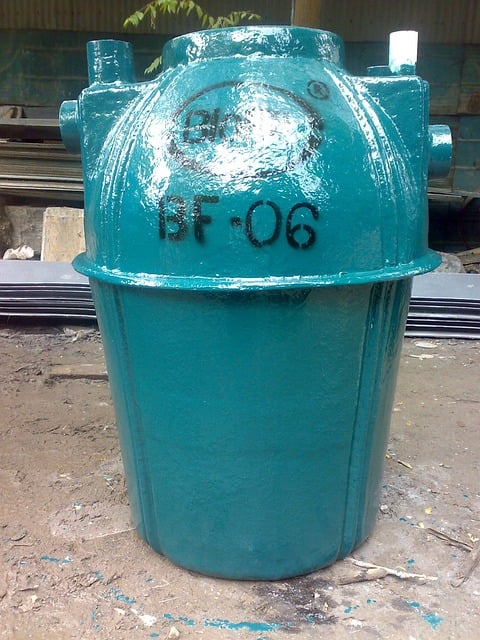Regular Septic System Maintenance is crucial for homeowners to ensure optimal performance and longevity of their systems, preventing costly repairs and environmental risks. Key practices include pumping and inspecting every 3-5 years, avoiding non-biodegradable substances, using eco-friendly products, and conserving water. Ignoring signs of trouble or improperly disposing of waste can lead to severe issues and system damage.
“Unraveling the secrets of a well-maintained septic system is essential for every homeowner. This comprehensive guide aims to empower you with the knowledge needed to ensure your septic system’s longevity and efficiency. We’ll start by demystifying these complex yet crucial components of our plumbing infrastructure, ‘Understanding Your Septic System.’ Then, we’ll delve into practical tips under ‘Do’s of Septic System Maintenance’ and steer clear of potential pitfalls in the ‘Don’ts’ section. Stay informed to maintain a healthy septic system.”
- Understanding Your Septic System: A Comprehensive Guide
- Do's of Septic System Maintenance: Key Practices for Homeowners
- Don'ts of Septic System Care: Common Mistakes to Avoid
Understanding Your Septic System: A Comprehensive Guide

Understanding your septic system is crucial for effective maintenance and longevity. A septic system is a sophisticated network designed to treat and dispose of household wastewater safely and efficiently. It consists of a septic tank, drain fields, and sometimes an absorption bed or sand filter. Wastewater enters the tank, where beneficial bacteria break down organic matter through anaerobic digestion. This process reduces the volume of waste and converts it into liquid effluent. The clarified effluent then flows from the tank to the drain fields, where further treatment and infiltration occur into the soil.
Regular monitoring and care are essential for this natural filtration system. Homeowners should be aware of potential red flags like clogs, unusual odours, or poolings around the drain fields. Simple maintenance tasks include regular pumping of the septic tank (typically every 3-5 years), preventing excessive water usage, and avoiding disposal of non-biodegradable materials. By understanding how their septic system functions and taking proactive measures, homeowners can contribute to maintaining a healthy environment and ensuring the longevity of this vital component of their property.
Do's of Septic System Maintenance: Key Practices for Homeowners

Maintaining a septic system is an essential task for every homeowner to ensure the smooth operation and longevity of this vital component of their property. Regular care can prevent costly repairs and potential environmental hazards. The do’s of septic system maintenance focus on proactive measures that promote efficient waste treatment and distribution.
Key practices include regular pumping and inspection intervals, typically recommended every 3-5 years. This involves removing solid debris accumulated in the tank to prevent clogging. Additionally, homeowners should avoid disposing of non-biodegradable materials like fats, oils, and chemicals into the system, as these can disrupt the natural balance of bacteria necessary for proper decomposition. Using eco-friendly cleaning products and practicing water conservation are also part of responsible septic system maintenance.
Don'ts of Septic System Care: Common Mistakes to Avoid

When it comes to maintaining your septic system, there are several common mistakes homeowners often make that can lead to costly repairs or even complete failures. One of the biggest don’ts is ignoring signs of trouble. Many people wait until they notice a backup or odour before taking action, but by then, significant damage may have already occurred. Regular inspections and prompt attention to any issues are key to preventing major problems down the line.
Another mistake is overloading your septic system with improper waste disposal. Never flush non-biodegradable items like wipes, tampons, or disposable diapers. These items can clog pipes and disrupt the natural balance of bacteria needed for proper decomposition. Additionally, avoid pouring grease, fats, or large amounts of kitchen scraps into the system, as these substances can coat the walls of the septic tank and reduce its capacity to treat waste effectively.
Maintaining your septic system is crucial for ensuring a healthy, sustainable environment and preventing costly repairs. By understanding your system and practicing effective maintenance, such as regular pumping and proper waste disposal, you can extend its lifespan. Avoid common pitfalls like overloading the system with excessive water or disposing of non-biodegradable materials to prevent clogs and pollution. Stay informed about your septic system’s health through routine inspections, and remember that proactive care is always better (and cheaper) than reactive repairs. Embrace responsible septic system maintenance as a vital part of homeowner upkeep for a cleaner, greener future.
